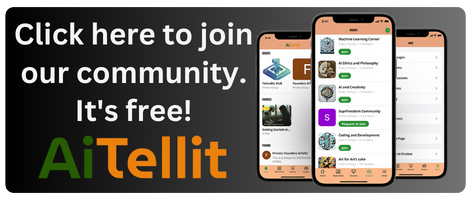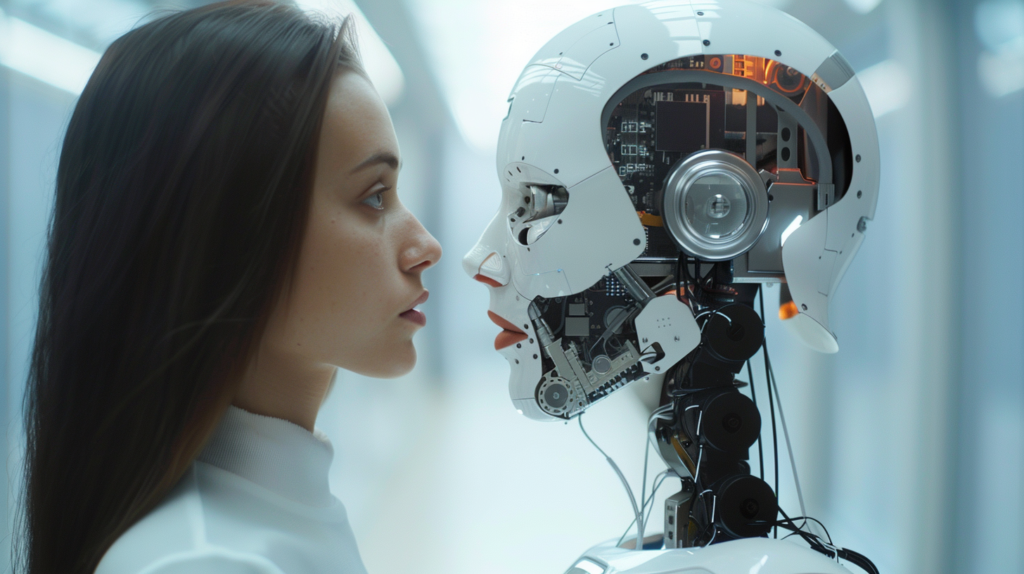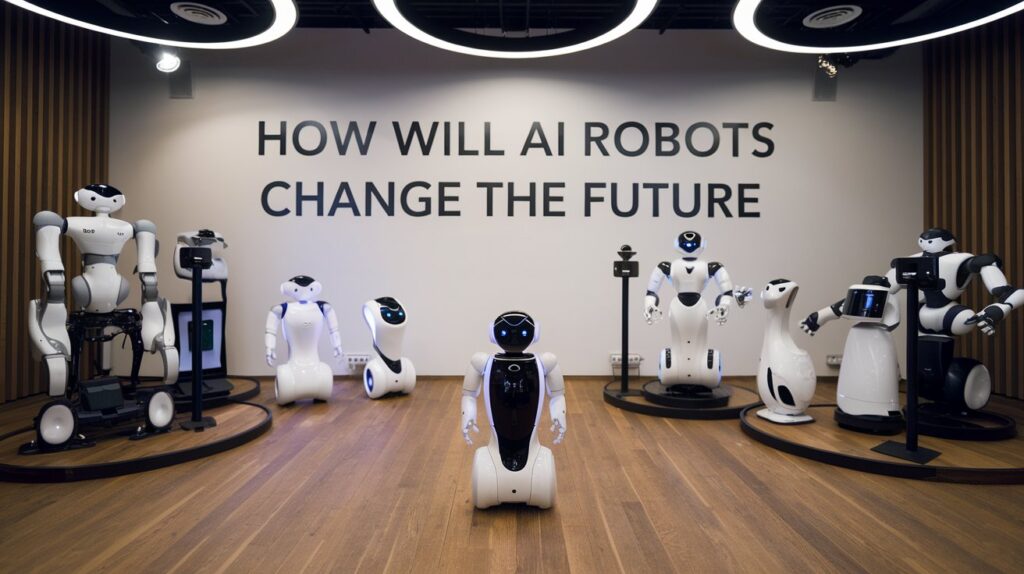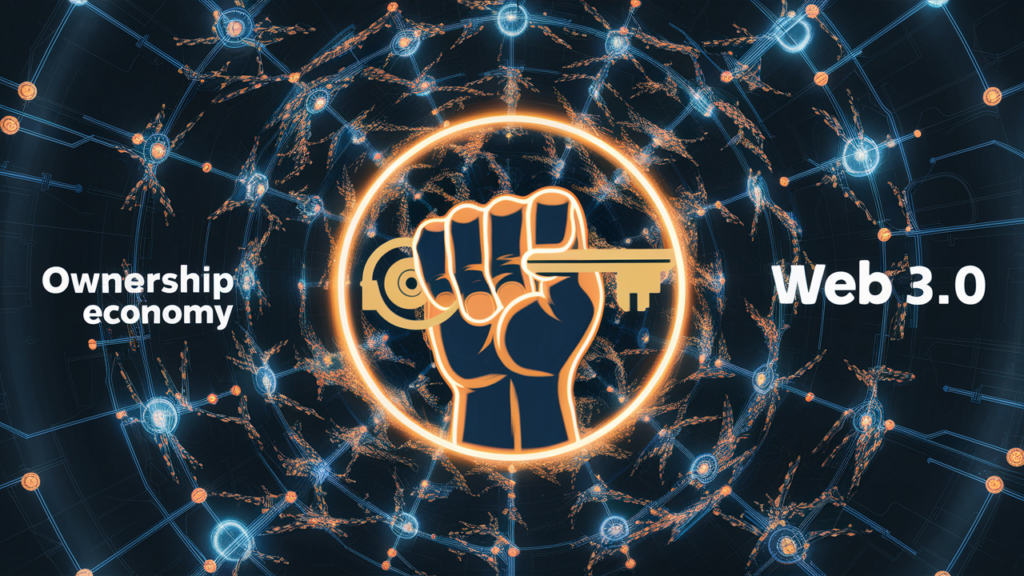Debunking Common Myths About AI in Social Media

You might think AI in social media is a monolithic force poised to replace human touch, but that’s far from the truth. AI actually works to enhance your online experience by automating mundane tasks and providing personalized content, allowing more meaningful interactions. However, myths like AI being unbiased or compromising your privacy persist, clouding its true potential and risks. To understand how AI really impacts your digital world and dispel these myths, you need to look at the nuances and realities shaping today’s social media landscape. Curious about the real story behind AI? Let’s explore.
Debunking Common Myths About AI in Social Media audio file
Key Takeaways
- AI is designed to complement human engagement on social media, not replace human creativity and emotional intelligence.
- Human-generated content and interactions remain essential, with AI assisting mainly in content moderation and efficiency.
- AI biases originate from training data, and efforts are ongoing to minimize these biases and diversify datasets.
- Privacy concerns are addressed by AI adhering to regulations like GDPR and implementing advanced security measures.
- AI in social media is continually evolving, adapting to new trends and user behaviors to stay relevant and effective.

AI Is a Single Entity
Many people mistakenly believe that AI in social media is a single entity, but it actually encompasses a diverse array of technologies and applications. This myth overlooks the complexity and variety of AI tools, each designed for specific tasks.
For instance, machine learning algorithms power recommendation systems that suggest content tailored to your preferences. These systems use vast amounts of data to predict what you might find engaging, enhancing your overall experience.
Language models, another facet of social media AI, help in content moderation and sentiment analysis. They can detect inappropriate content or gauge public sentiment about a trending topic. However, it’s crucial to understand that these intelligent machines aren’t infallible. They can inadvertently perpetuate human biases embedded in the data they learn from.
AI algorithms on social media platforms also assist in targeted advertising and user profiling. These tools aim to enhance productivity and engagement by delivering personalized ads and content. Yet, the misconception that AI is a monolithic entity ignores the nuanced roles these technologies play.
Each AI application operates within a specific context, contributing uniquely to the broader social media ecosystem. Understanding this diversity helps clarify the actual capabilities and limitations of AI in social media.
AI Will Replace Humans

The notion that AI will replace humans on social media platforms is a profound misconception that overlooks the irreplaceable value of human creativity and emotional intelligence in digital interactions. While AI has certainly made strides in enhancing user experience through personalized content and recommendations, it doesn’t aim to replace human interaction. Instead, AI algorithms assist users in navigating the vast amounts of information available on social media by optimizing and increasing efficiency.
It’s crucial to debunk the myths surrounding AI in social media. AI is designed to complement human engagement, not replace it. Automation of repetitive tasks allows you to focus on meaningful interactions, enhancing the overall social media experience.
Human-generated content and interactions remain the cornerstone of social media platforms, where emotional intelligence and creativity play essential roles that AI can’t replicate.
AI Lacks Bias
Believing that AI lacks bias is a dangerous misconception that can lead to unethical outcomes and reinforce existing prejudices. AI biases often stem from the training data used to develop these systems. If the data contains human biases, the AI will likely inherit those biases, affecting its decision-making processes and outcomes. This can result in unfair and inequitable outcomes, raising serious ethical concerns.
AI’s impact on society isn’t just a technical issue; it’s a deeply human one. Consider the following:
- Discriminatory hiring practices: AI can favor certain demographics over others due to biased training data.
- Unjust sentencing in criminal justice: Biased algorithms can perpetuate racial inequalities.
- Misinformation spread: Biased content recommendations can amplify false narratives.
- Unequal access to opportunities: Marginalized groups may be further disadvantaged by biased AI decisions.
To achieve fair outcomes, it’s crucial to implement mitigating strategies in algorithm development. This involves not just identifying and minimizing biases but also ensuring the training data is as diverse and representative as possible.

AI Compromises Privacy

While AI offers significant benefits in social media, it can also raise substantial privacy concerns that require careful consideration.
AI algorithms process vast amounts of user data, which can make users uneasy about their personal information’s safety. However, it’s important to know that AI can be designed to comply with stringent privacy regulations like GDPR, ensuring that your data is handled responsibly and transparently.
AI-driven moderation processes play a crucial role in protecting user data by detecting and preventing unauthorized access. By automating these tasks, AI enhances security and maintains the integrity of your information.
Ethical AI practices are also essential, aiming to strike a balance between personalization and privacy protection. This ensures that while you receive content tailored to your preferences, your data remains secure and your trust in the platform is upheld.
Moreover, AI tools offer advanced privacy settings, allowing you to control the visibility of your content and manage who can access your information. By integrating these security measures, social media platforms aim to build user trust and provide a safe environment.
Through careful implementation and adherence to ethical standards, AI can indeed foster a secure and trusted social media experience.
AI Is Unchanging
It’s a common misconception that AI in social media remains static and unchanging. In reality, AI is incredibly dynamic, constantly evolving with advancements in machine learning and natural language processing. Social media platforms regularly update their AI systems to enhance content recommendations, refine user experiences, and improve ad targeting. These adjustments aren’t trivial; they’re crucial to staying relevant and effective.
The evolving nature of AI in social media ensures adaptation to changing user behaviors, trends, and preferences. This adaptability is essential for maintaining engagement and relevance.
Consider the following emotional triggers:
- Frustration: Imagine if your social media feed never adapted to your evolving interests.
- Relief: Feel assured knowing AI is continuously updated to tackle misinformation and hate speech.
- Peace of Mind: AI algorithms are regularly adjusted to address privacy concerns, offering a safer online environment.
- Empowerment: User feedback and regulatory changes are taken seriously, making AI more responsive and reliable.
Continuous monitoring and adjustments to AI algorithms address various challenges, ensuring that social media platforms remain responsive to user needs and emerging issues.

Frequently Asked Questions
How Has AI Affected Social Media?
You’ve seen AI transform social media through content personalization, user engagement, trend analysis, and ad targeting. It tackles fake news, bot detection, influencer identification, social listening, audience segmentation, and sentiment analysis, enhancing your overall experience.
What Are 3 Negative Impacts of AI on Society?
You’re right to be cautious about AI’s impact on society. It raises privacy concerns, promotes deepfakes proliferation, and contributes to algorithmic bias, all of which can have significant ethical dilemmas and negative consequences for individuals and communities.
Why Is AI Sometimes Wrong?
AI’s sometimes wrong due to algorithmic bias, poor data quality, and model limitations. Without proper training data and human oversight, it struggles with context understanding and real-time processing. Ethical dilemmas and user feedback also impact predictive accuracy.
What Is Controversial About Artificial Intelligence?
You face numerous controversies with AI, including bias concerns, privacy issues, and ethical dilemmas. Manipulative algorithms, control problems, and data ownership disputes raise autonomy threats, while surveillance risks, misinformation spread, and accountability challenges fuel skepticism.
Conclusion
In debunking these myths, you see that AI isn’t a monolithic force but a tool to enhance your social media experience. It won’t replace humans; rather, it complements your creativity.
While AI can have biases, understanding this helps you use it more wisely. Concerns about privacy are valid, so stay informed and cautious.
Remember, AI is evolving, and its role is to assist you, not overshadow the authenticity of your interactions.







Responses